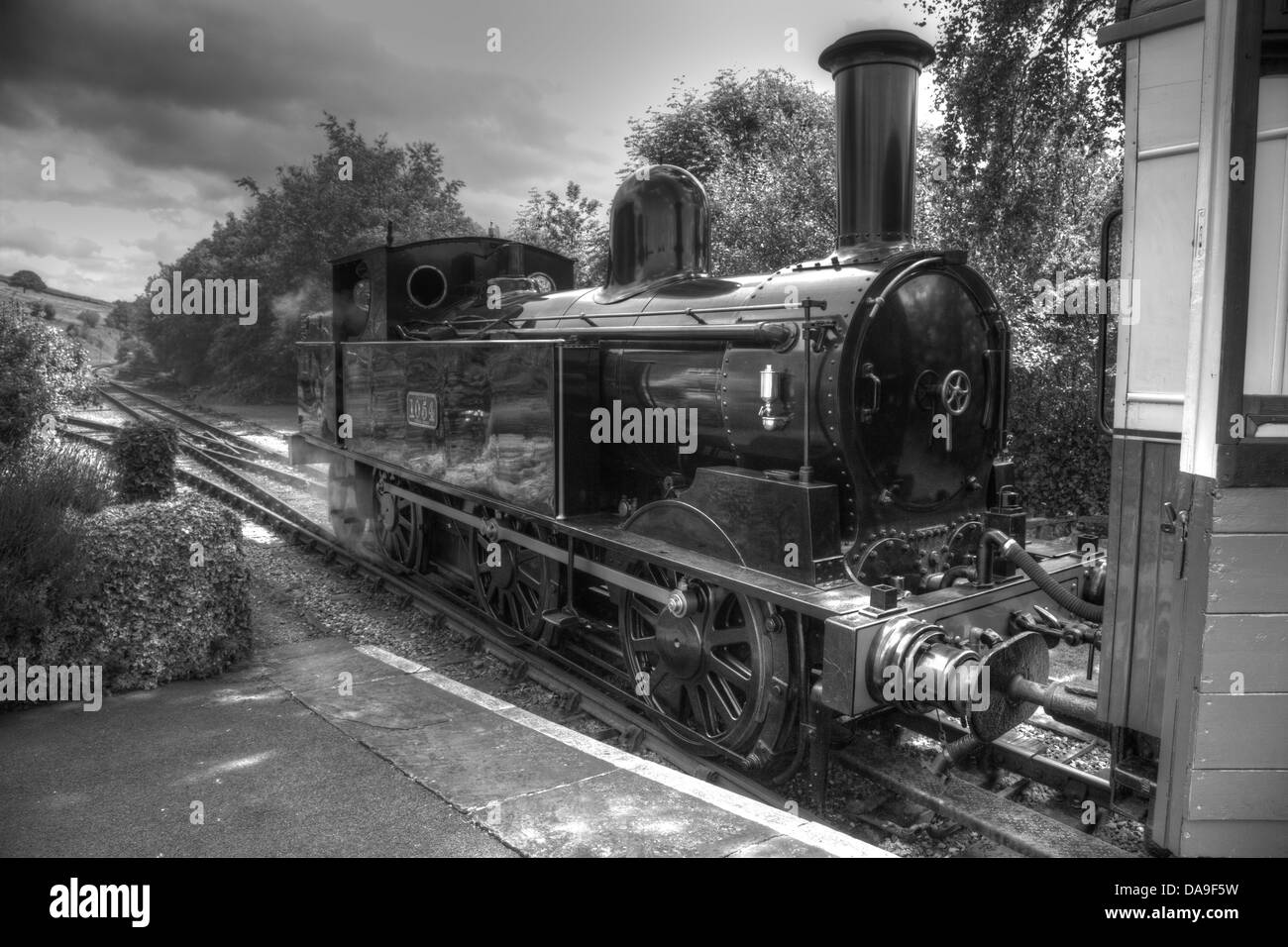No.1054 the ‘Coal Tank’, one of the country's oldest working locos at Oakworth on the Keighley & Worth Valley Railway

Image details
Contributor:
Kevin Clark / Alamy Stock PhotoImage ID:
DA9F5WFile size:
93.9 MB (4 MB Compressed download)Releases:
Model - no | Property - noDo I need a release?Dimensions:
7019 x 4678 px | 59.4 x 39.6 cm | 23.4 x 15.6 inches | 300dpiDate taken:
30 June 2013Location:
Oakworth Station, West Yorkshire, England, UKMore information:
No.1054, an LNWR Coal Tank, was built at Crewe and entered service in 1888, becoming No.7799 on the LMS Railway after the grouping in 1923, and then carried No.58926 under British Railways after the railways were nationalised in 1948. It is thought to have worked in the Birmingham area before the First World War, and in North and South Wales before it was withdrawn from service in January, 1939. It was almost scrapped but for the outbreak of the Second World War then overhauled and re-instated to traffic in December, 1940, a consequence of the shortage of locomotives required for the war effort. No.7799 continued to move around the country. It operated in the Manchester area working local trains from Bolton, and the Liverpool area from Edge Hill, before moving south to Bletchley where it worked the local passenger service to Dunstable. In 1950 it was at Shrewsbury, again working local passenger trains this time to Craven Arms and, after four years, moved to Abergavenny from where it was loaned to the National Coal Board for 12 months working alongside two of its classmates at Windsor Colliery in Ynysybwl near Pontypridd. It returned to Abergavenny as the last survivor of its type and, incidentally, the last Webb-designed locomotive in operation. It was kept as a spare engine and fitted with a snowplough during the winter months in case of heavy snowfalls on the line. It is doubtful, however, if it was ever utilized in this role. After working the last train on the Abergavenny to Merthyr line with 0-8-0 Super D No.49121 it ended its days at Ponytpool, where it was finally withdrawn for scrap in 1958, having travelled over one million miles in 70 years of public service. There the story might have ended, but for a group of determined enthusiasts headed by Max Dunn. Mr Dunn, the former Shedmaster from the locomotive depot at Bangor, was persuaded by a friend to organise an appeal to raise the £666 required by the British Transport Commission to buy No.1054. The appeal